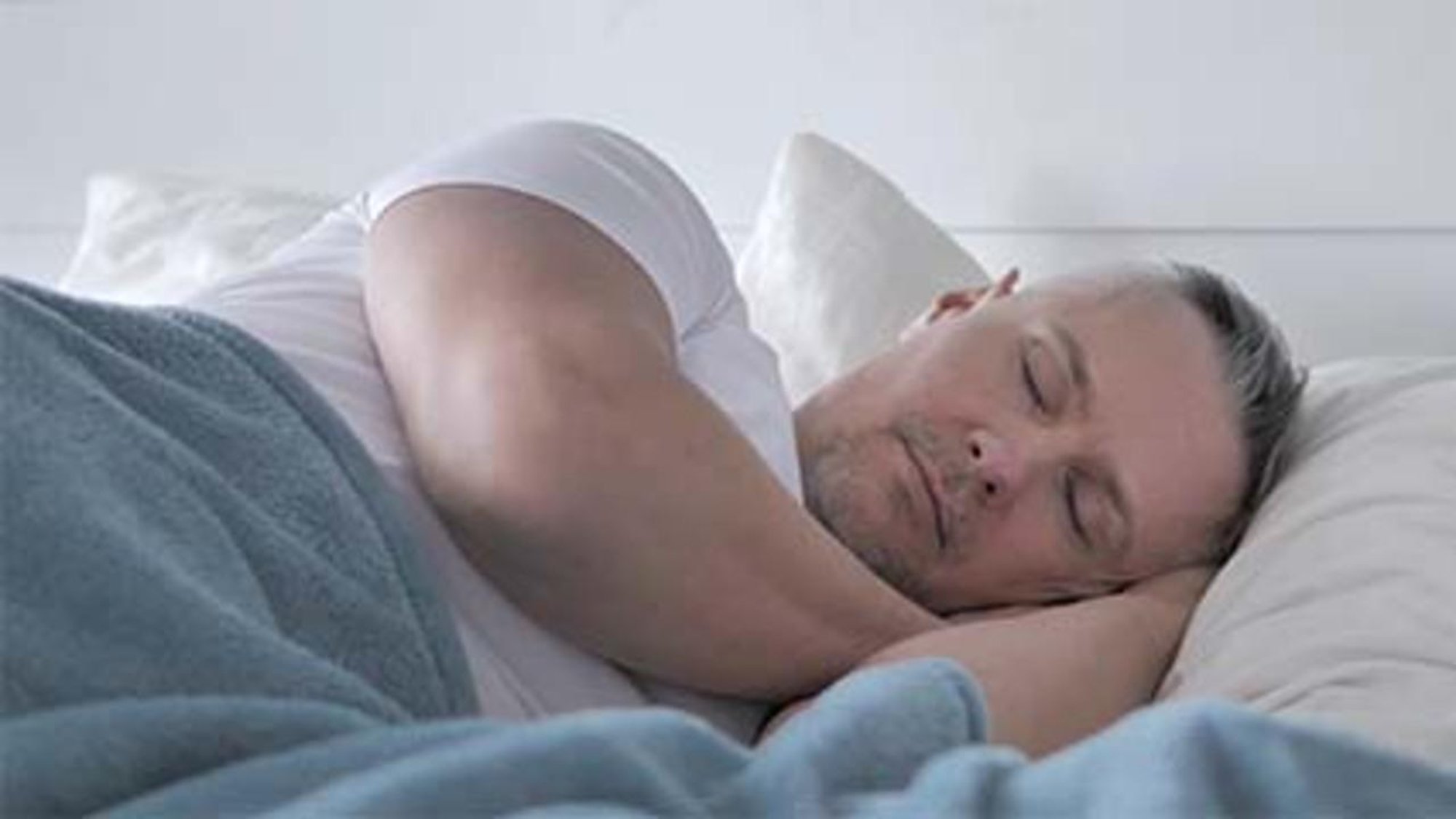How to Get to Sleep Fast

THURSDAY, March 9, 2023 (HealthDay News) -- It happens to everyone: you climb into bed, hoping for a good night’s rest. Yet, sleep remains elusive.
Your mind can't slow down. You need to go to the bathroom. You hear every noise in the house. You need to fall asleep. Now.
According to the American Academy of Sleep Medicine, most adults need at least seven hours of sleep a night. But it's hard to reach that goal if you struggle to slip into slumber in the first place.
So, how to go to sleep fast? Try incorporating the following tips and tricks.
Melatonin and magnesium
Magnesium is a mineral found in many foods you eat, including leafy green vegetables. It may support the function of the neurotransmitters related to sleep. The Cleveland Clinic suggests trying 200 milligrams of magnesium glycinate or magnesium citrate supplements about 30 minutes before bed to help with sleep.
Meanwhile, melatonin is a hormone your brain produces in response to your exposure to light. It helps your body set its sleep-wake cycle. Per the Mayo Clinic, melatonin production decreases due to aging, and this decrease can shorten your sleep. Melatonin is available as a supplement and is considered safe for short-term use. Johns Hopkins recommends starting with a small dose of 1 to 3 milligrams before bed.
Before starting any new supplement, it is essential to check in with your primary care provider.
Meditation
Meditation may be the answer if stress and anxiety keep you awake. The Sleep Foundation states that “meditation techniques are intended to promote a more relaxed response to a person’s stressful thoughts and feelings.” There are many free guided meditations available on the internet. Box breathing may also help you relax. The Sleep Foundation outlines the steps for box breathing:
- Starting after an exhale, inhale slowly through your nose while counting to 4.
- Hold your breath for another count of 4.
- Slowly exhale through your mouth for a count of 4.
- After exhaling, hold your breath for one final count of 4.
- Repeat this breathing pattern as needed.
Lower blue light exposure
“Electronics late into the evening can lead to sleep disturbances because of mental stimulation and blue light,” said Dr. Sanjeev Kothare, of Northwell Health, in New Hyde Park, N.Y. Blue light can suppress melatonin secretion and interfere with your sleep-wake cycle.
Harvard University recommends avoiding bright screens for two to three hours before bed. Blue light-blocking glasses are also recommended when using electronic devices later in the evening. Consider making the bedroom a screen-free room. The Sleep Foundation recommends using “night-time mode” on portable electronic devices, reducing the emission of blue light and dimming the display’s brightness setting.
Cut the caffeine
Kothare recommends avoiding caffeine after 2 p.m. Caffeine has a long half-life, meaning it takes a while to leave the body. This can lead to difficulty falling asleep or staying asleep. Caffeine isn’t just found in coffee. Four ounces of milk chocolate have the caffeine equivalent of a half cup of coffee, while green tea, kombucha and energy drinks all contain caffeine.
Create a better sleep environment
Creating an environment conducive to rest can improve your sleep. Dr. Fariha Abbasi-Feinberg, a sleep specialist at Millennium Physician Group in Fort Myers, Fla., recommends “making sure the bedroom is cool, dark and quiet. Sometimes white noise, such as a fan, can help.” Consider using blackout blinds or drapes to limit the room's light and setting the temperature a few degrees lower than usual to create the optimum sleep environment.
Eat earlier rather than later
Time your food intake — your last big meal of the day should be at least two to three hours before bedtime. Mount Sinai recommends a small bowl of yogurt or cereal low in sugar if you are hungry closer to sleep. A warm, non-caffeinated beverage may also help you unwind before bed.
Limit alcohol and drug use
Kothare recommends avoiding alcohol and other drugs for better sleep. Alcohol acts as a sedative and may cause you to fall asleep faster. Yet, alcohol is known to disrupt the sleep cycle. The Cleveland Clinic explains that as alcohol starts to metabolize, the sedative effect diminishes. You will wake up easily and more often in the latter half of the night. You will also not experience deep REM sleep and will wake up groggy.
Seek medical advice if needed
Abbasi-Feinberg recommends seeking medical care “if your sleep issues interfere with your ability to function during the day or cause you to be drowsy while driving or at work.”
SOURCES: Fariha Abbasi-Feinberg, MD, sleep specialist, Millennium Physician Group, Fort Myers, Fla.; Sanjeev Kothare, MD, child neurology, epilepsy and sleep medicine, Northwell Medical, New Hyde Park, N.Y.
Related Posts
Dialectical Behavior Therapy Tied to Fewer Suicide Attempts
TUESDAY, Sept. 19, 2023 (HealthDay News) -- Dialectical behavior therapy (DBT)...
Biden to Nominate Head of National Cancer Institute to Run NIH
THURSDAY, April 20, 2023 (HealthDay News) -- The U.S. National Institutes of...
¿Qué tan saludable es el terror?
VIERNES, 28 de octubre de 2022 (HealthDay News) -- Ese intenso sentimiento de...
COVID-19 Recession Resulted in ‘Baby Bump’
TUESDAY, Aug. 22, 2023 (HealthDay News) -- The COVID-19 recession resulted in an...
